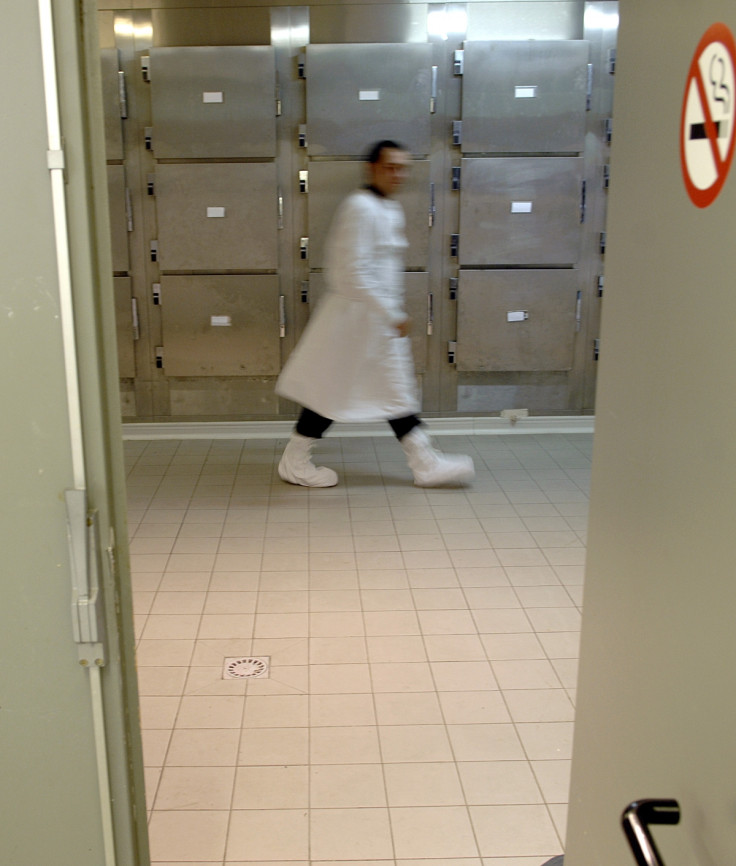Sudden Unexplained Nocturnal Death Syndrome: Why Healthy Men Die in their Sleep

A recent study from China revealed there has been a surge in the number of healthy young men dying in their sleep in the industrial hub of Dongguan.
The study, Epidemiological Study of Sudden Unexplained Nocturnal Death Syndrome, showed that between 1990 and 1999, there were 231 cases of male factory workers dying in this way.
Between 2001 and 2013, there were 893 cases of sudden unexplained nocturnal death syndrome (Sunds). Experts noted the men worked very long hours for overtime pay.
Matteo Vatta, associate professor of clinical medical & molecular genetics and director of cardiovascular genetics at Indiana University, has studied Sunds in his work.
Explaining the syndrome, he said it was much more common among men from southeast Asia because of a gene called SCN5A. A study from 1997 found that men from Thailand living in the US were dying unexpectedly in their sleep.
They identified an ECG pattern where the heart rhythm is altered: "It's very recognisable pattern," he told IBTimes UK.
Findings showed that there was a similar death rate from Sunds among Thai construction workers in Singapore, regardless of socio-economic factors – prompting researchers to consider a genetic link.

But what is it?
Vatta looked at patients from Japan and found the SCN5A gene was mutated in their DNA. The gene affects the function of the heart. Put simply, he said, the heart has three layers that have a "specific density and expression of ion channels". Each layer can generate an electric gradient between the outer and inner parts of the heart. With Sunds, the gene defect reduces the function of the gene, which can lead to an increased risk of ventricular arrhythmias.
"This occurs more prominently when asleep because our heart is slowing down during night ... which makes the heart be more prone to those ventricular arrhythmias that may be fatal to the subject."
Sunds is far more common in men because of the way the SCN5A gene mutates. He also said other factors including gender specific hormones could be linked to the increased risk for men.
As well as being genetically predisposed to the condition, risk can increase as a result of many other factors, including high blood pressure, drug use, diabetes, obstructive sleep apnea, smoking, and excessive caffeine and alcohol consumption.
After someone has died from Sunds, their autopsy will come back negative, meaning there is nothing to explain the death. Compared to a heart attack caused by a blood clot or coronary heart disease – which is very visible – if there is an electrical malfunction, as with Sunds, it will not be visible.
"If the autopsy is completely negative normally an electrical abnormality or an electrical event is taken into strong consideration," Vatta explained.
Chinese factory workers

Previous research papers have found different incident rates of Sunds. In China, one paper found it was estimated to be one in every 100,000 deaths. Another study from the Philippines found it was 43 in every 100,000 – showing there is disparity between areas and research into the syndrome.
Commenting on the latest study, Vatta said: "Obviously stress, low socioeconomic conditions are favouring factors but not causative factors, probably.
"As risk factor, if someone lives in a very contained place with other people because they cannot afford a flat for themselves, they are in contact with many other people, who could have infections. And they might not have money for treatment. Of course this could be a risk factor to increase susceptibility.
"There are many many risk factors. I am speculating, but if you have to work long hours and you have to keep yourself awake, sometimes with energy drinks that contain a lot of caffeine, this of course is a risk factor for arrhythmia."
Vatta said the challenge now was to "make a reliable account of those deaths" through epidemiological studies: "They are trying to refine ways to analyse those deaths and so we need more studies to identify if there are specific sub-population genetic factors or socioeconomic factors.
"It appears very likely that the genetic factors are going to be prominent because deaths occur independent of the location where they happen."
© Copyright IBTimes 2025. All rights reserved.





















